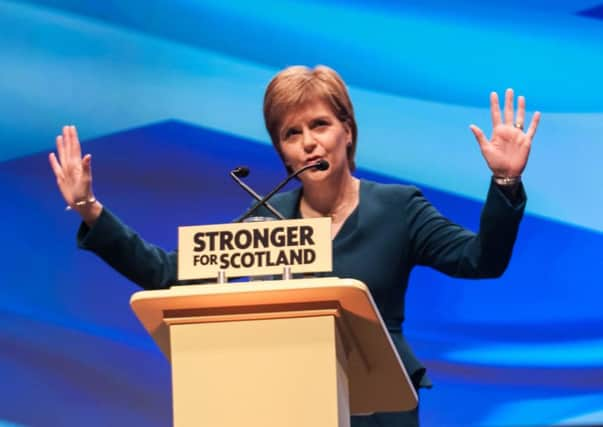Leader comment: Haggling over right to hold referendum is premature


The stakes have gone higher, and Ms Sturgeon’s firm stance will have surprised observers who reckoned the remarks of senior party figures who cautioned against moving too quickly to a second referendum were preparing the way for the First Minister to begin a retreat from her June declaration that a second ballot was “highly likely”.
Instead, the First Minister has underlined her position and has moved the debate on to the practicality of holding a further referendum, declaring yesterday morning that it was “totally inconceivable” that Mrs May would try to block it. This has had an immediate effect, with Mrs May’s spokeswoman stating last night that the 2014 referendum was “once in a generation and it’s vital it should be respected”. In other words, Ms Sturgeon might think it is inconceivable that a referendum would be blocked, but she should not be so sure about that.
Advertisement
Hide AdAdvertisement
Hide AdThis is a marked difference to the attitude of Mrs May’s predecessor, with David Cameron having agreed without much fuss to the Scottish Government’s request that the independence question be put to the people of Scotland, with his objection being to the options offered on the ballot paper rather than the principle itself. It will not be lost on Mrs May that such an accommodating approach also allowed Brexit to happen and created the current turmoil, not least the reawakening of a Scottish independence movement he thought he had put to bed.
Both Mrs May and Ms Sturgeon are taking a gamble as they wait for the other to blink. Mrs May risks creating resentment if she blocks an SNP bill passed at Holyrood, presumably backed by the Greens, for another referendum, while Ms Sturgeon knows that, as things stand, she has no good reason to believe she would win this time around.
But the debate over whether a referendum can happen is a distraction. “Once in a generation” is meaningless. If the circumstances were beyond dispute, a re-run would take place, whether short, medium or long term.
And the circumstances are not right, at this stage. None of the key issues which caused so much concern last time around – currency, economy, and of course EU membership – have been adequately addressed. Instead, the debate has become embroiled in procedure.
The First Minister said repeatedly a few months ago that a referendum would only take place if the people of Scotland demanded one. We have heard this argument less frequently of late. Have the people said as much? If they have, they have kept it quiet. Arguments over legitimacy are premature.